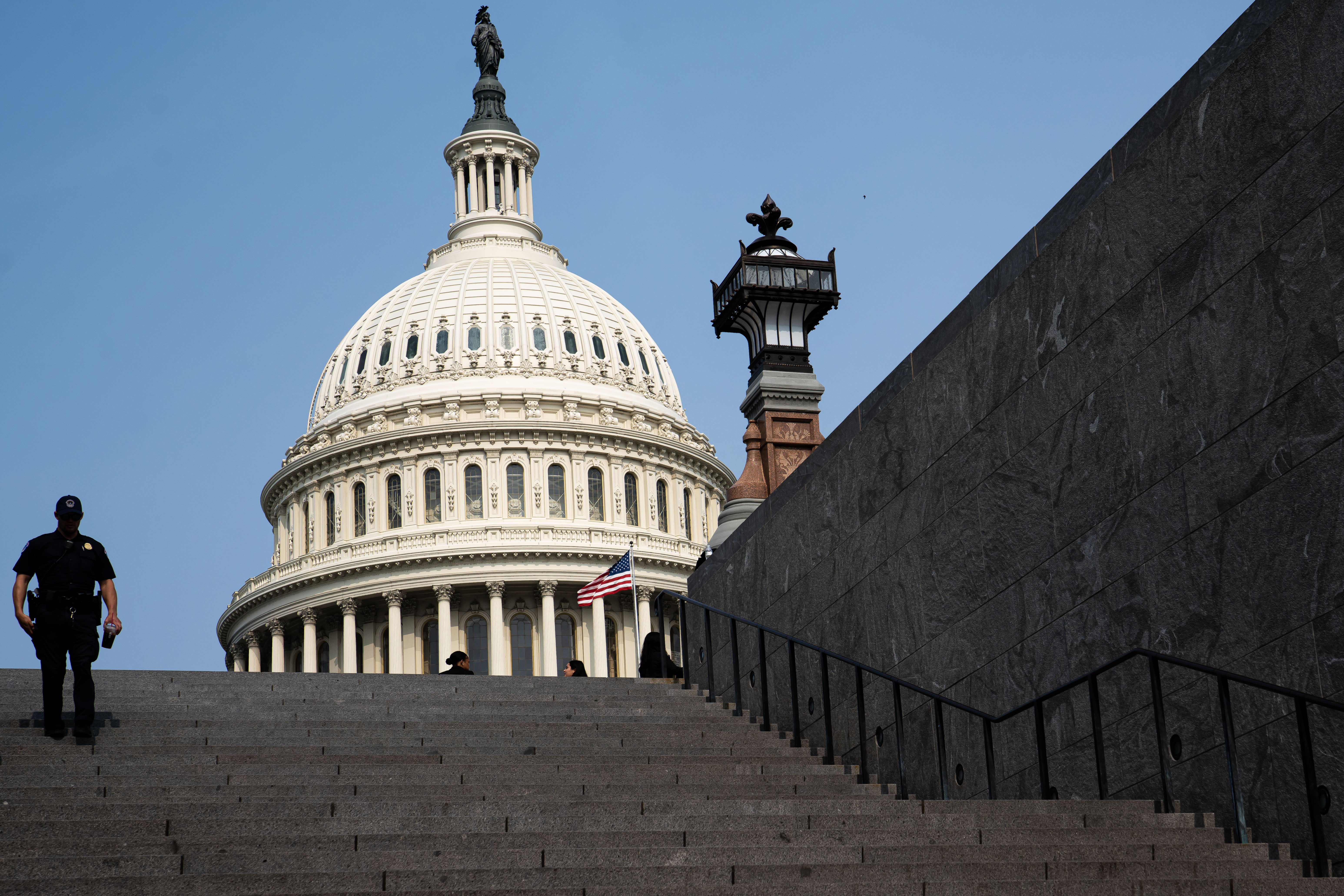Products You May Like
A measure in the debt ceiling deal terminating the student loan payment pause is facing heavy opposition from advocates, progressives and borrowers.
“The pause on student loan payments remains one of the most durably popular pieces of economic policy because the American people recognize what Washington has long struggled to understand: The student loan system is broken,” said Mike Pierce, executive director of the Student Borrower Protection Center.
related investing news
The center published a poll on Monday finding that 61% of voters want the stay on student loan bills, which has been in effect for more than three years now and spanned two presidencies, to be extended if President Joe Biden’s sweeping forgiveness plan is struck down by the U.S. Supreme Court. A decision by the justices is expected in June or July.
More from Personal Finance:
Parents paying for college ‘is the norm’
4 strategies to avoid taking on too much student debt
These moves can help you save big on college costs
Rep. Ayanna Pressley, D-Mass., filed an amendment on Monday that would strike the debt ceiling deal provision ending the pause on student loan payments. Pressley’s proposed amendment was not included in the final bill.
“Republicans continue to play games with our economy, with disregard for our most vulnerable families,” Pressley said.
According to the legislative text of the proposed agreement to raise the debt ceiling, the pause on federal student loan payments will “cease to be effective” and borrowers will be required to resume paying their student loan bills 60 days after June 30. Their first due date will likely be in September, experts said.
White House spokesman Abdullah Hasan defended the president’s negotiations on behalf of borrowers, pointing out that the administration had planned to end the pause this summer anyway.
“This agreement makes no changes to that plan,” Hasan said.
Congressional control idea worries advocates
However, as part of the deal, the U.S. Department of Education would also be restricted in its ability to extend this particular relief again, with another prolongment likely only possible from Congress. The department has been able to extend the pause on its own several times throughout the public health crisis.
It is that provision that especially worries consumer advocates, given the uncertain outcome of Biden’s forgiveness plan.
“This deal takes away the White House’s ability to extend the current payment pause if the Supreme Court kills the relief, making it more likely 40 million people will have to repay loans that the president promised were canceled,” said Astra Taylor, co-founder of the Debt Collective, a union for debtors.
The Supreme Court is likely to strike down the policy, experts say, given that the conservative justices outnumber the liberals.
The Biden administration has warned that resuming student loan payments without being able to carry out its debt forgiveness plan could trigger a historic spike in defaults and delinquencies because of the economic troubles wrought by the pandemic and borrower confusion over what they owe.
This deal takes away the White House’s ability to extend the current payment pause if the Supreme Court kills the relief.Astra Taylorco-founder of the Debt Collective
In exchange for voting to raise the nation’s debt ceiling, Republicans demanded large cuts to federal spending.
As part of negotiations, they also sought to repeal Biden’s executive action granting student loan forgiveness. But the Biden administration refused to agree to that, and the ongoing legal battle over the plan made any legislation potentially moot.
This is a developing story. Please check back for updates.


